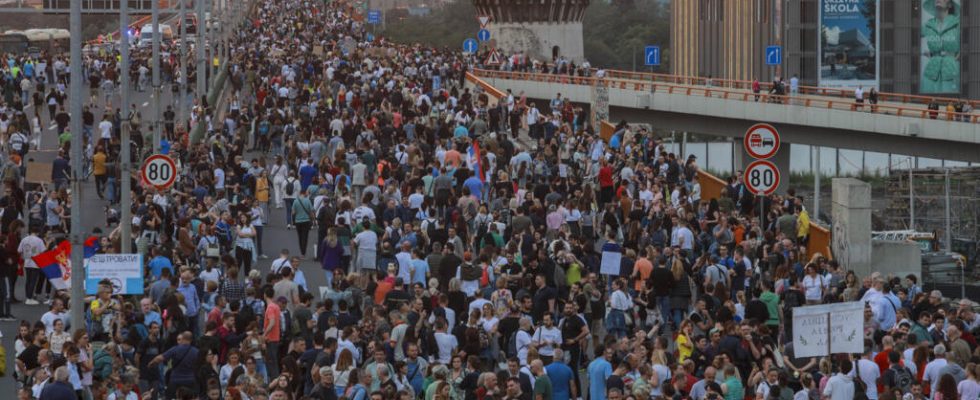Serbia is living its eighth week of protests following two shootings that left 18 dead and 20 injured, many of them children. For the first time, “Serbia Against Violence” demonstrations took place in ten cities. Report from Novi Sad.
The movement is spreading and has taken on a political dimension against the power of incumbent President Aleksandar Vucic, accused of fueling the atmosphere of violence in the country, particularly through the TV programs of pro-government channels, with the aim of stay in power.
Called by several pro-European opposition parties, these rallies accuse the government of promoting a culture of violence, particularly on television, after two mass shootings that claimed the lives of 18 people last month. On May 3, a 13-year-old boy killed nine classmates and a guard at a school in Belgrade. Less than 48 hours later, a young man murdered eight people in two villages near the capital. People first demonstrated as a sign of mourning, but the protest turned into a vast movement of anger against the power of President Aleksandar Vucic.
Demonstrations in ten cities
For the first time, demonstrations against violence are held in ten provincial towns, reports our correspondent in Belgrade, Laurent Rouy. The demonstrators block traffic lanes for a few hours. In Novi Sad they blocked a bridge. For Igor, 38, violence in society made people angry
Read alsoThe Serbian power of Aleksandar Vucic undermined by the demonstrations and the crisis in Kosovo
“ People can tolerate being robbed. But when children die, when there is so much violence on national television channels, it is unprecedented. It’s inhumane “, he explains.
Angelina, 35, hesitated. She remembers the protests of 2020. The power had not yielded anything for months, then had sent the police to brutally break the movement. ” I’ve been to protests before and there were a lot of police in riot armor, she remembers. Yeah, there’s a little fear coming to protests “.
” We must break the censorship of the media »
But, for Alexandar, it is necessary to publicize the protests, which are absent from the pro-power media, the only ones with national coverage. ” Media censorship must be broken. People need to hear about the movement. That they film the protesters with their phones and that the movement spreads on social networks “, he launches.
So far, the protesters have won neither the resignation of the Minister of the Interior, nor an end to censorship, nor an end to violent programs. It remains to be seen whether the government will be sensitive to the extension of the demonstrations.
(And with AFP)
